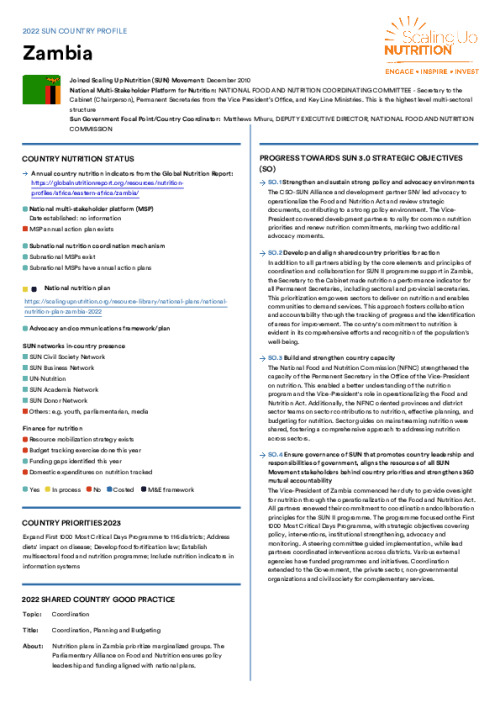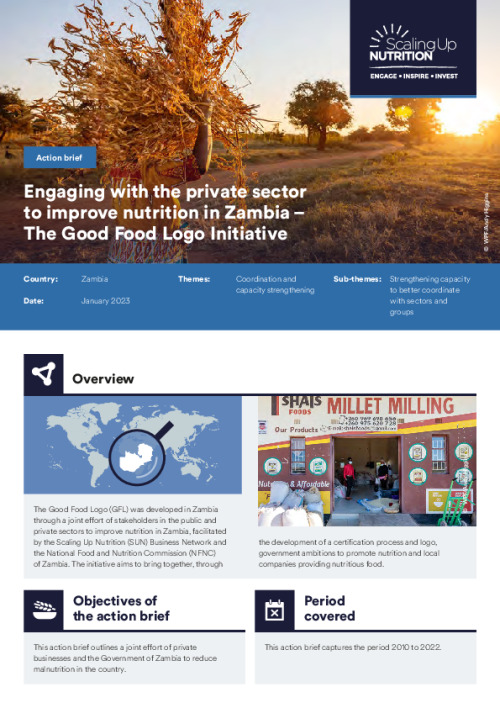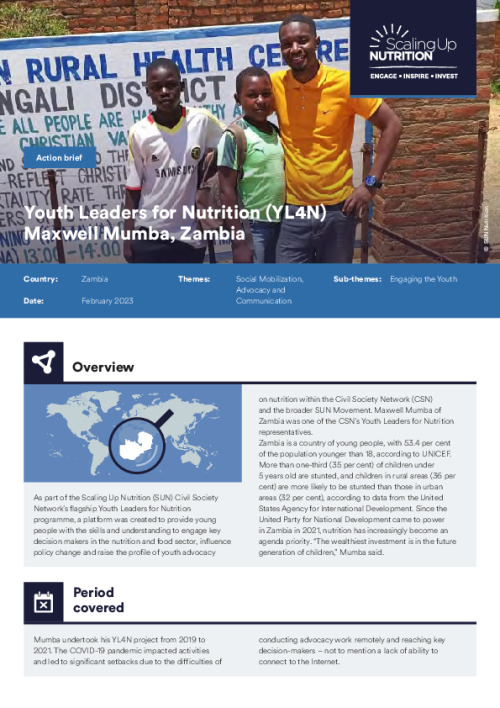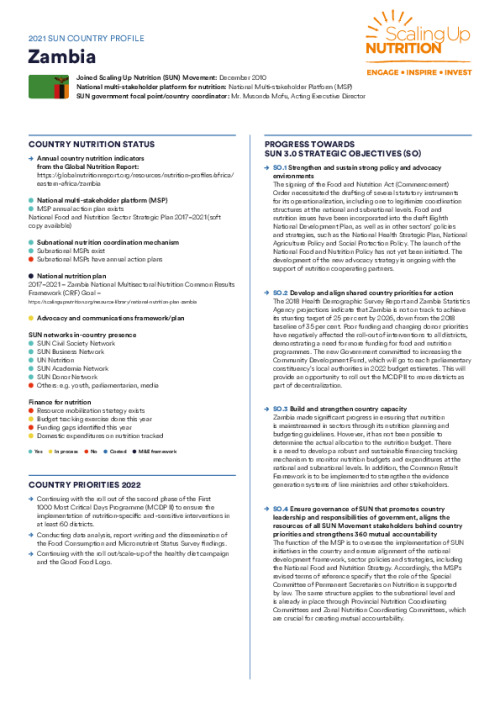
Zambia
Joined Scaling Up Nutrition (SUN) Movement
December 2010
National multi-stakeholder platform for nutrition
NATIONAL FOOD AND NUTRITION COORDINATING COMMITTEE - Secretary to the Cabinet (Chairperson), Permanent Secretaries from the Vice President’s Office, and Key Line Ministries. This is the highest level multi-sectoral structure
Sun Government Focal Point/Country Coordinator
Matthews Mhuru, DEPUTY EXECUTIVE DIRECTOR, NATIONAL FOOD AND NUTRITION COMMISSION
Country nutrition status 2022
- Yes
- In process
- No
- Costed
- M&E framework
National multi-stakeholder platform (MSP)
National nutrition plan
Advocacy and communications framework/plan
Subnational nutrition coordination mechanism
SUN networks in-country presence
Finance for nutrition
Country priorities 2022
2022 Shared country good practice
Coordination, Planning and Budgeting
Coordination
Nutrition plans in Zambia prioritize marginalized groups. The Parliamentary Alliance on Food and Nutrition ensures policy leadership and funding aligned with national plans.
Progress towards SUN 3.0 Strategic Objectives (SO)
The CSO-SUN Alliance and development partner SNV led advocacy to operationalize the Food and Nutrition Act and review strategic documents, contributing to a strong policy environment. The Vice-President convened development partners to rally for common nutrition priorities and renew nutrition commitments, marking two additional advocacy moments.
In addition to all partners abiding by the core elements and principles of coordination and collaboration for SUN II programme support in Zambia, the Secretary to the Cabinet made nutrition a performance indicator for all Permanent Secretaries, including sectoral and provincial secretaries. This prioritization empowers sectors to deliver on nutrition and enables communities to demand services. This approach fosters collaboration and accountability through the tracking of progress and the identification of areas for improvement. The country's commitment to nutrition is evident in its comprehensive efforts and recognition of the population's well-being.
The National Food and Nutrition Commission (NFNC) strengthened the capacity of the Permanent Secretary in the Office of the Vice-President on nutrition. This enabled a better understanding of the nutrition program and the Vice-President's role in operationalizing the Food and Nutrition Act. Additionally, the NFNC oriented provinces and district sector teams on sector contributions to nutrition, effective planning, and budgeting for nutrition. Sector guides on mainstreaming nutrition were shared, fostering a comprehensive approach to addressing nutrition across sectors.
The Vice-President of Zambia commenced her duty to provide oversight for nutrition through the operationalization of the Food and Nutrition Act. All partners renewed their commitment to coordination and
collaboration principles for the SUN II programme. The programme focused on
the First 1000 Most Critical Days Programme, with strategic objectives covering policy, interventions, institutional strengthening, advocacy and monitoring. A steering committee guided implementation, while lead partners coordinated interventions across districts. Various external agencies have funded programmes and initiatives. Coordination extended to the Government, the private sector, non-governmental organizations and civil society for complementary services.


